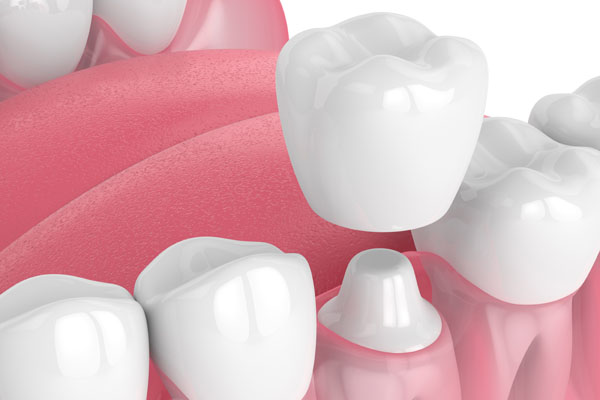Is Your Mouth Fully Functional? A Full Mouth Reconstruction Supports a Fully Functioning Mouth

A person whose mouth can no longer perform one of the two primary functions of the mouth, eating and speaking, can be an excellent candidate for full mouth reconstruction. For people like this, dental issues, such as disease or erosion, can impede one or both of those functions, making life more challenging and compromising oral health. Here are some ways this type of treatment can allow the mouth to function properly again.
Eliminate pain while chewing
When dental disease is present, it can often be difficult to chew because of the pain. This can lead to dietary changes, such as switching to softer foods, that are not necessarily healthy.
Fix tooth pain
The following are examples of tooth issues that can cause pain while chewing:
- dental decay
- exposed roots
- tooth erosion
There are several different procedures involved in a full mouth reconstruction that can solve these and other issues, making it comfortable to chew again. Some of the foods required for a properly balanced diet can be crunchy or chewy, and strong, healthy teeth are much better able to chew these foods than weak or diseased teeth.
Relieve gum pain
Diseased gums can become sensitive and swollen, making it painful to chew. Gum disease could mean infection, abscesses, and even bleeding. Left untreated, gum pain will only increase until the gums decay and recede.
Reduce impediments while speaking
The tongue and teeth work in tandem to allow the mouth to form words. When there are issues with the teeth, speech impediments can occur.
Correct problem teeth
Teeth that lean too far forward or backward and do not align properly with the opposing teeth can keep sounds from correctly leaving the mouth. Crowded teeth can reduce the amount of space the tongue has to move around and can cause a slur. A full mouth reconstruction can fix not only misaligned and crowded teeth but also gaps in teeth and crooked teeth that can contribute to speech impediments as well.
Replace missing teeth
A missing tooth, especially towards the front of the mouth, can cause a slur or lisp when speaking. Patients with multiple missing teeth can find it extremely difficult to communicate well. Restoring these teeth can allow the tongue to produce normal speech sounds again.
Reverse jaw damage
When the jaw is damaged, either in an accident or from years of teeth grinding, speech clarity can be impacted. Especially if there is jaw pain during speech, it can be difficult to open the mouth wide enough to form some sounds correctly. Restoration can be the right way to fix jaw damage and allow the mouth to function normally.
Conclusion
A mouth that has difficulty eating or speaking is not a fully functioning mouth. Patients with severe tooth, gum, or jaw pain can be hindered from having a decent quality of life. Fixing more extreme cases of oral pain and problems with a full mouth reconstruction can help patients speak and eat properly, as well as improve overall health.
Request an appointment here: https://gkdentaloffice.com or call GK Dental PC at (617) 826-6075 for an appointment in our Everett office.
Check out what others are saying about our services on Yelp: Read our Yelp reviews.
Recent Posts
Dental restorations have been used for thousands of years. In fact, a 2012 article published by The New York Times details the discovery of a 6,500-year-old human jawbone. Considered the earliest evidence of dental fillings, it had beeswax in one tooth, which researchers believe was to ease the pain of a crack. These days, restorations…
Crowns are commonly used in dental restorations. A crown is a cap shaped like a tooth but hollow in the middle. It fits over a natural tooth that has to be prepared first. Depending on the issue it is correcting, a crown can be used by itself or as a component of another restoration technique.Teeth…
Regular dental checkups are vital to keeping your teeth and gums healthy. You should visit your family dentist at least once every six months. This includes both adults and children alike. Routine dental appointments are essential for good oral health and they offer many important benefits.Tartar removal is an important step in dental appointments that…
Restorative dentistry refers to any type of dental procedure that a dentist performs to restore a damaged or missing tooth. Dental restorations can encompass several procedures that vary in terms of invasiveness, complexity, and what they can accomplish. However, the overreaching goal of all restorative procedures is to improve the health, function, and appearance of…


